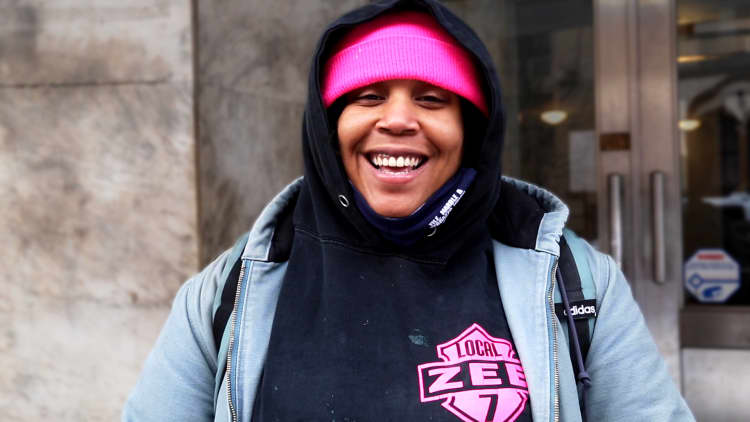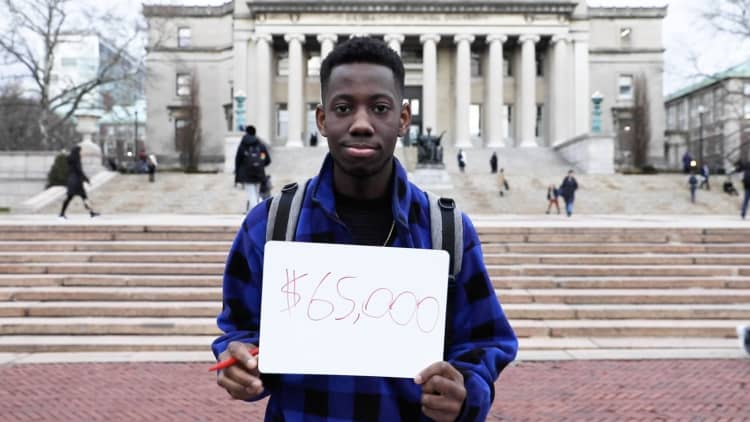Despite the current pause on federal student loan payments, student debt continues to be a major concern for tens of millions of Americans who have student loans. The majority of these borrowers are women.
According to the American Association of University Women (AAUW), women hold roughly two-thirds of all student debt in the United States. As of 2020, women held almost $929 billion in outstanding student debt.
Researchers at the Georgetown Center on Education and the Workforce have found that in order for women to earn equal sums as men, they must earn an additional degree. For instance, a woman with a bachelor's degree earns $61,000 per year on average, roughly equivalent to that of a man with an associate's degree. In part due to the need to compete in this imbalanced labor market, women attend college at higher rates than men and thus make up the majority of student loan borrowers.
But there are additional dynamics that lead to the gender student debt gap, and recent student loan forgiveness conversations are calling attention to the worrying trend.
Why the gap exists
"Gender is not talked about enough in the conversations around student loan debt — both the acquisition of the debt and then paying it off," says Persis Yu, director of the National Consumer Law Center's Student Loan Borrower Assistance Project. "One of the explanations for why women tend to take on more debt is because they tend to have more expenses, such as folks who are going back to school and who have children."
Yu adds that the gender pay gap impacts the ability of women borrowers to repay their loans. "If you make less money, you're going to be able to pay down the debt slower. That's just a fact of life," she says. "We know that these disparities and inequities exist throughout society, throughout the labor force. And so it's going to be reflected in the student loan market as well."
"Women earn less than men with the same level of education. And therefore, if they borrowed exactly the same amount to get the same education, it would be harder for women to repay that debt because they have lower incomes," explains Sandy Baum, senior fellow at the Urban Institute and professor emerita of economics at Skidmore College. "Another issue is that women are more likely than men to attend for-profit institutions, which create problems for many people."
According to the National Center for Education Statistics, just 21% of students at for-profit colleges graduate within six years. That rate is roughly four times higher at non-profit colleges and universities on average. For-profit college graduates earn 11% less compared to graduates of public universities and according to the Brookings Institution, roughly half of students who take on debt to study at a for-profit college default on their loans, compared to 19% borrowers at non-profit private colleges and 18% of borrowers at non-profit public colleges.
Women are also more likely to attend graduate school, which often requires taking out significant student loans, further contributing to the gender student debt gap. And Aaron Taylor, executive director of the AccessLex Center for Legal Education Excellence explains that race also impacts the gender student debt gap.
"Sometimes when we see gender-based disparities that show women have higher debt burdens or are suffering the impact of student debt more so than men, that really is a racial impact that is masquerading as a gender impact," says Taylor. "What I mean by that is for instance, if you look at the enrollment of Black and Latino law students, anywhere from 60% to 65% of those enrollments among those groups are women, so if you were to tease out the statistics for white women specifically, and compared them to white men, they would be more comparable. It's not until you add in the women of color who are in law school that you start to see greater disparities play out."
"African-American women with a graduate degree still earn less than white men with just a college degree," adds Yu. "Because of the way that the labor market is set up, women, people of color, and then especially women of color, really need to get that credential in order to compete in the labor market. And so that means that they're going to take on a lot more debt."
The AAUW estimates that white women with undergraduate student loan debt borrowed $31,346, on average. Black women with undergraduate student debt borrowed closer to $37,558.

Student debt forgiveness
The gender and racial student debt gaps are among the reasons legislators are advocating for significant student debt relief.
House and Senate Democrats have urged President Biden to "broadly" forgive up to $50,000 of federal debt through executive order, an approach Senate majority leader Chuck Schumer has repeatedly reiterated Biden should take during his first 100 days in office.
"The student debt crisis is a racial and economic justice issue and we must finally begin to address it as such," said Congresswoman Ayanna Pressley in a Dec 17 statement. "Broad-based student debt cancellation is precisely the kind of bold, high-impact policy that the broad and diverse coalition that elected Joe Biden and Kamala Harris expect them to deliver."
Kyle Southern, policy director of higher education and workforce for the advocacy group Young Invincibles issued his support for Pressley's resolution, arguing that broad debt forgiveness could address gender and racial inequalities.
"Taking this action is critical to advancing an equitable economic recovery. The compounding impact of systemic racism and gender discrimination on student borrowers who are Black, Latinx and women means they incur more debt out of necessity and take longer to repay that debt," he said in a statement. "Currently, women borrowers hold two-thirds of all student debt. Broad student debt cancellation would substantially boost Black, Latinx, and women-led households, help close the racial wealth gap and avert default."
Biden is expected to call on Congress to forgive $10,000 in student debt for borrowers.
And because most student loan borrowers are women, women would most likely make up the majority of those receiving assistance.
Don't miss:



